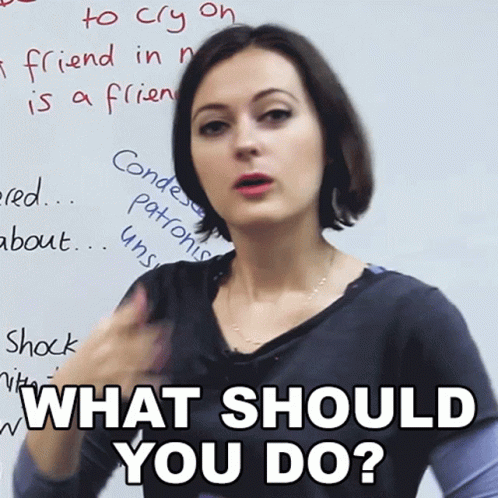
It started with a rash…"
"I got back from a work trip to East Africa two weeks ago, feeling fine—maybe a little jet-lagged, but nothing unusual. A few days later, I noticed this weird rash on my hands and arms. It wasn’t itchy at first, but now it’s spread to my chest and back, and some of the spots look like blisters. I’ve also had a fever and felt exhausted. My GP thinks it might be mpox (monkeypox), but I’m confused—wasn’t mpox something that only affected a specific group of people during the outbreak in 2022? Should I be worried about my flatmates? My family? How bad can this get? Please help, I’m terrified."
This story could easily be a real cry for help in today’s climate of health scares. Considering the global health crises of the last few years, it's no surprise that the mere whisper of a new infectious disease sends a shiver down our spines. But what’s really going on with mpox? Why is everyone suddenly talking about it again? Let’s dig into the facts and the fears behind this potential health threat.
What Is Mpox Anyway?
Mpox (formerly known as monkeypox) is a viral disease that has been around for decades but suddenly came into the global stage in 2022. Unlike COVID-19, which hit like an asteroid out of nowhere, mpox had long simmered quietly in parts of Africa.
For years, the Democratic Republic of the Congo (DRC) reported cases linked to contact with animals or their meat. However, things shifted dramatically when Clade 2b mpox made its debut in Europe and other parts of the world.
This strain spread quickly, mostly through close contact during sex, and predominantly affected gay and bisexual men. For the first time, mpox became a household name in the UK, with almost 100,000 cases reported globally. It wasn’t the next pandemic, though—it had a low mortality rate, with only 4 deaths per 10,000 cases in Europe. Vaccination efforts helped stem the tide, and things eventually settled.
So why the panic now? Well, there’s a new player in town: Clade 1b mpox, a strain that seems more transmissible and deadlier. And yes, it’s already knocked on the UK’s door.
What’s the Deal with Clade 1b?

Clade 1b is a variant of mpox that emerged in the DRC and neighbouring countries in 2023. It’s different from its cousin, Clade 2b, in a few unsettling ways:
- It spreads more easily: While Clade 2b primarily spread during sex, Clade 1b is spreading rapidly within households and communities.
- It’s deadlier: This strain carries a higher mortality rate, particularly in children and vulnerable populations.
- It’s expanding fast: Cases have been reported in Central and East Africa, and the UK logged its first imported case in October 2024. And the US has seen its first case in San Mateo County California.
Although UK authorities maintain that the risk to the general population remains low, the potential for widespread transmission has people on edge.
Are We Overreacting?
Let’s be real! Headlines like “New Deadly Mpox Variant Emerges” practically beg for clicks. It’s easy to see why comparisons to COVID-19 are being made. Both involve global spread, unknowns about immunity, and the dreaded possibility of overwhelming healthcare systems. But mpox is not COVID, and there are key differences worth noting:
- It’s not airborne: Mpox spreads through close contact, not through sneezes and coughs in a crowded train.
- We have vaccines: Unlike the scramble to develop COVID vaccines, we already have smallpox vaccines that offer protection against mpox.
- We’re more prepared: Public health authorities like the UK Health Security Agency (UKHSA) are monitoring mpox closely, and vaccination programs are already in place for high-risk groups.
Why the Fear?
A lot of the concern stems from how Clade 1b is behaving. It’s not just spreading through sexual networks but also via household contact. This increases the risk of transmission to children, the elderly, and other vulnerable groups. Add to that the higher mortality rate, and you’ve got a recipe for public unease.
But fear isn’t always rational. After all, the vast majority of cases are still happening in Central and East Africa. The UK has reported only one imported case so far. Still, memories of how COVID spread from isolated cases to a global pandemic make it hard to shrug this off.
What Should You Do?

Here’s what you don’t need to do: panic. Here’s what you should do:
- Stay informed: Follow updates from trusted sources like the UKHSA or the World Health Organization (WHO).
- Get vaccinated if eligible: If you’re part of a high-risk group and haven’t gotten both doses of the smallpox vaccine, now’s a good time to consider it.
- Be vigilant: If you’ve traveled to affected regions or been in close contact with someone who has, monitor yourself for symptoms like fever, rash, and blisters.
A Better Response This Time Around
One silver lining in this situation is that we’ve learned from past mistakes. Organizations like the Terrence Higgins Trust (THT) are working tirelessly to ensure clear, non-stigmatizing communication about mpox. From coordinating with sexual health services to lobbying the government for better vaccination programs, they’re making sure we’re as prepared as possible.
Unlike the confusion and delays during the early days of COVID, this time we’re ahead of the curve.
Summarily
So, is mpox the new COVID? No, not really. But is it worth taking seriously? Absolutely. Public health is a team effort, and we all have a role to play. Stay informed, get vaccinated if you’re eligible, and remember: it’s okay to feel concerned, but let’s not let fear drive the narrative.
We’ve faced health scares before, and we’ve come out stronger. Let’s do it again.
Thumbnail was made with #canva
